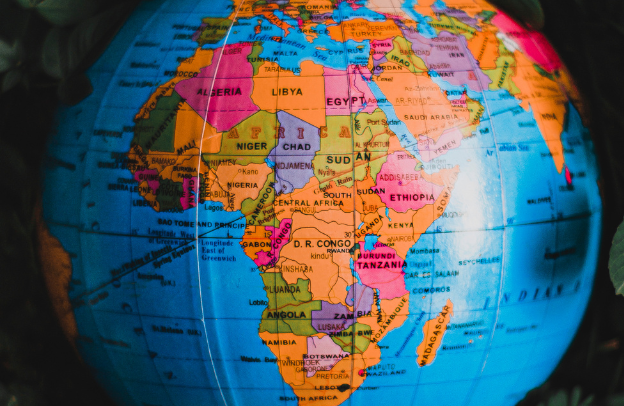Never Disperse Your Culture Because It’s Your Strength In The World

In a world that constantly pushes towards homogenization, the preservation and celebration of cultural heritage stand as acts of resilience and empowerment. This sentiment was at the heart of a recent LinkedIn audio live event in our series of diaspora storytelling, “Harnessing the Power of African Diaspora Heritage for Positive Change.” The key message that emerged from this discussion was that: as Africans and members of the African diaspora, we should never disperse our culture, for it is our strength in the world.
Want to learn more about storytelling? Start by downloading the first chapter of The Storytelling Mastery.
Gloria Tinu Ogunbadejo’s Reflections: Honoring the Past
Gloria Tinu Ogunbadejo, a Certified Ancestral Healing Practitioner and NLP Coach brought a profound perspective to the discussion. As an ordained minister and advisor at Diabetes UK, Ogunbadejo’s work is rooted in restoring balance and harmony through the acknowledgment of one’s roots.
“Acknowledging and honoring our ancestors and those who have been here before us is essential and cannot be stressed enough,” she said during the event. This acknowledgment is not just a formality but a crucial part of identity and resilience.
Ogunbadejo emphasized the power of storytelling in preserving cultural heritage. “We need to keep telling our stories and let them become a way of life,” she noted.
Storytelling serves as a bridge between generations, ensuring that the values, struggles, and triumphs of the past are not forgotten. This practice is vital for maintaining a strong cultural identity amidst the pressures to assimilate into dominant cultures.
The importance of community and collaboration was another key theme in Ogunbadejo’s reflections. “We can harness the power of African diaspora heritage for positive change by working collaboratively among people of African descent,” she asserted.
See also The Struggle for Engagement: Overcoming Storytelling Fatigue and Audience Apathy.
This collaboration involves creating spaces for dialogue, learning, and shared experiences, which can foster a sense of unity and purpose.
Ogunbadejo also highlighted the need for self-reflection in preserving cultural heritage. “Are you honoring your ancestors in your actions?” she asked.
This question prompts individuals to consider whether their daily choices and behaviors align with the values and traditions passed down through generations. By doing so, they can avoid inadvertently undermining their heritage.
Dr. Marcia Thomas’s Insights: Embracing African Identity
Dr. Marcia Thomas, an expert in helping faith-based introverted women leaders recover from life trauma, brought another layer of insight to the conversation. She emphasized the importance of understanding one’s African identity, irrespective of where one resides in the world.
“Our ancestors left key messages in the universe whether good or bad when they were going through situations,” Dr. Marcia explained. These ancestral messages continue to influence the lives of their descendants, shaping their experiences and perspectives.
You might also like The Transformative Power of Ancestral Lineage Healing: A Conversation with Gloria Tinu Ogunbadejo.
She noted that to fit into mainstream narratives, individuals often question their identity. “Sometimes, we need to accommodate other people, but we must harness our heritage,” she said.
This balancing act requires individuals to respect and integrate into the societies they live in while also retaining and celebrating their unique cultural backgrounds.
The richness of African heritage, according to Dr. Marcia, is unparalleled. “The African heritage is one of the richest if not the richest in the world,” she stated. This richness stems from a diverse history of languages, traditions, art forms, and philosophies.
However, to fully appreciate and harness this heritage, it is crucial to understand its historical context, including the exploitation and abuse that have shaped it over the centuries.
See also Harnessing the Power of African Diaspora Heritage for Positive Change.
Dr. Marcia called for active engagement in cultural appropriation, not in the negative sense often associated with the term, but as a means of reclaiming and celebrating one’s heritage.
“We need to be the ones to do the work to reclaim our heritage,” she urged. This involves a conscious effort to learn, teach, and embody the traditions and values that define African cultures.
Josiah Umezurike’s Perspective: Economic and Knowledge Retention
Josiah Umezurike, founder of Solution Security Architect in Columbia, South Carolina, provided a pragmatic view on the economic and intellectual aspects of cultural preservation.
Having lived in the United States for over 25 years, Umezurike has witnessed the challenges and opportunities within the African diaspora. “We work so hard, but the capital resource is not retained in the African community,” he observed. This leakage of economic resources hampers the community’s ability to build sustainable wealth and influence.
Umezurike stressed the importance of retaining economic power within the community. “We need to try hard to work together as a people,” he said. By supporting African-owned businesses and initiatives, individuals can ensure that their economic contributions benefit their own communities, fostering growth and resilience.
See also What is Memory Building, and the Cultural Relevance to It?
Connecting with African roots and leveraging knowledge were other key points in Umezurike’s reflections. “We need to understand that we need to connect with our African roots,” he emphasized. This connection is not just emotional but practical, involving the application of traditional knowledge and wisdom in modern contexts.
Umezurike highlighted the interconnectedness of African cultures and the potential for collective strength. “There is strong interconnectedness among different African cultures, so stop the division,” he urged.
By recognizing and embracing the commonalities among diverse African cultures, individuals can build a unified front that is better equipped to address global challenges.
Building on the Discussion: Broader Perspectives
The reflections shared during the LinkedIn event are part of a larger conversation about cultural preservation and empowerment within the African diaspora. Other authoritative sources echo these sentiments, emphasizing the importance of cultural heritage as a source of strength.
According to Dr. Molefi Kete Asante, a leading figure in Africology, “African culture is a source of strength and resilience. It provides a foundation for identity, community, and resistance against oppression.”
Asante’s work highlights the role of cultural heritage in fostering a sense of belonging and purpose, which can be powerful tools in navigating the complexities of modern life.
The late Chinua Achebe, one of Africa’s most celebrated writers, also spoke to the power of cultural heritage. In his book “Things Fall Apart,” Achebe explores the impact of colonialism on traditional African societies.
His portrayal of the protagonist’s struggle to maintain his cultural identity amidst external pressures underscores the importance of cultural preservation in the face of change.
In the academic realm, scholars like Dr. Patricia McFadden have examined the role of cultural heritage in social and political movements. McFadden argues that “the preservation of cultural heritage is essential for the empowerment of marginalized communities. It provides a sense of continuity and strength that can inspire resistance and innovation.”
Conclusion that you should Never Disperse Your Culture Because It’s Your Strength In The World
As individuals and communities, there is a pressing need to honor our ancestors, tell our stories, and work collaboratively to reclaim and celebrate our heritage. This involves not only understanding and embracing our cultural roots but also actively engaging in economic and intellectual endeavors that benefit our communities.
In the words of Gloria Tinu Ogunbadejo, “Never listen to those who tell you to disperse your culture. Why do you listen to them? Everybody is fighting to keep their values, but what are we doing to preserve our heritage?” This call to action challenges individuals to reflect on their cultural practices and take intentional steps to preserve and celebrate their heritage.
Dr. Marcia Thomas’s insights further underscore the importance of this endeavor. “Let us be consciously engaged in our cultural appropriation,” she urged. By taking an active role in learning and teaching our cultural traditions, we can ensure that they remain vibrant and relevant for future generations.
Consider also Josiah Umezurike’s perspective on economic and knowledge retention as practical guidance for this journey. “We need to start exporting knowledge and know-how to our people in Africa,” he suggested.
By sharing skills and expertise, we can empower communities both within the diaspora and on the continent.
See also Empowering Communities: The Role of African Diaspora Women in Small Business.
Ultimately, the preservation and celebration of African heritage is not just a matter of cultural pride; it is a source of strength and resilience in a rapidly changing world.
Let’s embrace our heritage, so we can navigate the challenges of modern life with a sense of purpose and unity. This is how to ensure that the legacy of our ancestors continues to inspire and empower future generations.
Want to learn more about storytelling? Start by downloading the first chapter of The Storytelling Mastery.






